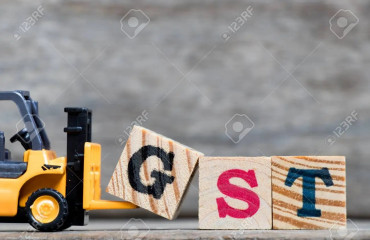
NEW DELHI : The Goods and Services Tax (GST) Council on Tuesday exempted integrated GST on select drugs when imported for personal use, redefined sport utility vehicles (SUVs) to prevent carmakers from side-stepping the highest tax bracket and levied a 28% uniform GST on online gaming, horse racing, and casinos on the full value of the bets.
NEW DELHI : The Goods and Services Tax (GST) Council on Tuesday exempted integrated GST on select drugs when imported for personal use, redefined sport utility vehicles (SUVs) to prevent carmakers from side-stepping the highest tax bracket and levied a 28% uniform GST on online gaming, horse racing, and casinos on the full value of the bets.
Finance minister Nirmala Sitharaman, who chairs the GST Council, said at a briefing that tax rates were cut on four items—uncooked snack pellets, fish soluble paste, certain yarn, and LD slag—a by-product of steel production that is used in certain industries. The council also exempted integrated GST (IGST) for three items—cancer drug dinutuximab (Qarziba), medicines, and food for special purposes used to treat rare diseases specified by the Union health ministry.
Among the changes, uncooked snack pellets and fish soluble paste will now be taxed at 5%, down from 18%, while a specific type of yarn will be taxed at 5%, down from 12%. The tax rate on LD slag will be cut from 18% to 5%, on par with blast furnace slag and fly ash.
In the case of online gaming, horse racing, and casinos, a vexed issue on which ministers consulted extensively, the council recommended amendments to the law to specify a 28% tax on all three categories at their full face value.
"I am happy to say we have arrived at a decision. There will be some amendments to GST law. Simply put, online gaming, horse racing, and casinos will be taxed at 28% and will be taxed on full face value," Sitharaman said.
Amendments to GST law will be brought to specify that tax will be applicable on the face value of the chips purchased in the case of casinos, on the full value of the bets placed with bookmaker/totalisator in the case of horse racing and on the full value of the bets placed in case of the online gaming, an official statement from the finance ministry explained.
However, industry players expressed their concerns. Malay Kumar Shukla, secretary of the E-Gaming Federation, called the move "an extremely unfortunate decision as charging a 28% tax on full face value will lead to a nearly 1,000% increase in taxation and prove catastrophic for the industry".
The council decided to streamline the definition of SUVs, which attract a 22% cess and a 28% GST rate. The existing definition covers vehicles popularly known as 'sport utility vehicles' in addition to having engine length of more than 4,000 mm, engine capacity of more than 1,500 cc and ground clearance of 170 mm, and above. From this, the reference to SUVs is being dropped. It will also be clarified that ground clearance will be measured in un-laden conditions.
Large multi-utility vehicles (MUVs) such as the Toyota Innova Crysta and Hycross, as well as the Maruti Suzuki Invicto, will attract a compensation cess of 22%, as per the council's clarification, as a vehicle no longer has to be "popularly known as an SUV" to attract 22% cess as long as it meets a set of criteria related to height, ground clearance, and engine capacity.
Now, MUVs meeting the above criteria will be taxed on par with full-sized SUVs such as the XUV700 and Scorpio-N, attracting 28% GST and 22% compensation cess.
MUVs such as Maruti Suzuki Ertiga, XL6, and Kia Carens have engine capacities less than 1,500cc and will therefore continue to attract 20% cess.
However, people in the industry highlight that the implications of the GST Council's specification of "unladen" ground clearance will need more clarity, as vehicle ground clearance is typically certified in a laden state.
The council also decided to introduce provisions in central and state GST rules to allow states to require e-way bills or electronic permits for the transportation of gold within their territory.
The council also decided to mandate producers of tobacco, pan masala, and other similar items to register their machines and for filing special monthly returns. The penalty will be levied for non-registration of machines by such manufacturers, said the statement.
Revenue secretary Sanjay Malhotra, who was present on the occasion, explained that there was doubt about the tax rate applicable on food and beverages when consumed in cinema halls.
The council clarified that these would be taxed at 5% and not at 18% when sold independently of the cinema ticket and not as a composite supply, the official said.
Malhotra also explained that the Centre's order last week of allowing the Financial Intelligence Unit (FIU) to share information with GSTN, the company that processes tax returns, was meant to empower the tax authorities with more information. "GSTN is the recipient of information," the official said.
